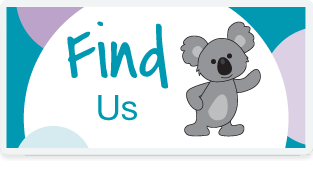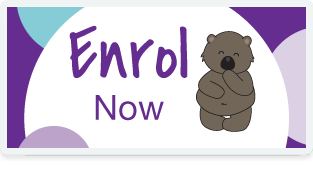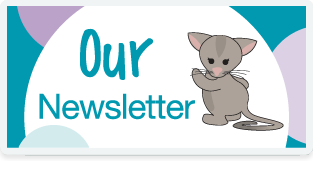Our Philosophy
Our Vision for the children in our care is that they “…become successful learners, confident and creative individuals and active and informed citizens.” (Early Years Learning Framework, 2009)
It’s our duty to acknowledge the original custodians of the land, the DHARAWAL people. We have a responsibility to our children, families and community to establish and maintain a sense of belonging and connection to this land, its animals, and its people, embracing our shared Aboriginal history and culture.
Each child, family, educator and others of the broader community are unique and valued, bringing with them a diverse myriad of skills, interests, abilities, ideas and ways of being, that contribute to our preschool COMMUNITY. Likewise, to promote children and families sense of belonging and connection to the local community, we are committed to promote and support local causes and business. Through collaboration with people and agencies, we strive to provide children with different ways of being that will reflect the values, traditions and practises of their families and communities. Through shared communication and developing partnerships, we are able to work with each other in order to support each individual’s journey with us.
FAMILY is a powerful influence on a child’s learning and development and we strive to develop partnerships with them. We believe that families are their child’s first educators. They have the greatest influence on their life, and have a wealth of knowledge about their child. Communication between families and educators is the foundation for respecting and trusting relationships. We work together in partnership to support and nurture each child’s learning and development.
It is in the early years that foundations are laid for the development of environmentally responsive adults, to ensure our world’s sustainable future. To promote this action for SUSTAINABILITY, it is necessary for children to retain their sense of awe and wonder in our land, nature and animals; and implement strategies to promote energy saving, waste minimisation, water saving, and sustainable food practices, as children are encouraged to respect both our natural and man-made environment.
The OUTDOOR ENVIRONMENT is the very best place for children to learn, practice and master emerging gross motor skills. An interesting and dynamic outdoor environment which includes natural elements, such as sand, dirt, grass, edible gardens, rocks, timber logs, fire, water and a variety of different plants and trees, allows children to explore and experience the natural environment. It also provides benefits such as improved concentration, enhanced imaginative and creative play; increased problem solving, leadership, and social and emotional skills; and reduced anxiety. The outdoor environment invites open ended interactions, spontaneity, risk taking, exploration, discovery, and connections with nature.
Children are strong, interested, capable, curious, and resourceful learners who are active participants in their own LEARNING. Children should be encouraged and supported to grow and develop through a child centred, play based program. Our environment is considered the ‘third teacher.’ Educators intentionally organize, support and plan for various areas for children. The day is planned to ensure that there is a balance between individual, small and large group experiences; child initiated and educator supported activities; both structure and freedom; and a variety of indoor and outdoor experiences. Provision is also made for periods of peace, quiet and reflection. Foundations for life, are learnt in both the context of play, as well as through responsive, thoughtful and intentional teaching.
Every child has the right to a childhood, and a crucial aspect of this is providing time to simply PLAY. Play should be fun, exciting, spontaneous, hands-on, stimulating, relaxing, and challenging. It provides children with the opportunity to explore, take risks, discover, extend their limits, experiment, create, practise theories, investigate, solve problems, express ideas, and learn about their world, each other and themselves. It is through play that children learn about themselves and the world around them, as well as skills for later in life. Foundations of literacy and numeracy and other pre-academic skills are learnt both in the context of play and through responsive and intentional teaching.
The best way to prepare children for tomorrow is to respect who they are now. As they TRANSITION TO SCHOOL AND BEYOND, we aim to provide a program that equips them with core learning skills, which will not only contribute to a positive transition to kindergarten, but also set them up with valuable and lasting life skills. Children who have a strong sense of identity and well-being, effective communication and social skills, are confident to experiment through trial and error, who are happy to persist when they find something difficult, and an enthusiasm for learning, are likely to apply these same learning strategies and dispositions in school and beyond.
Providing a high quality of education and care requires a commitment to shared professional standards. EDUCATORS take pride in their profession, as they advocate in the best interests of children and their families. They are recruited for their training, experience, positive manner, and commitment to best practice. Each educator brings fundamental personal qualities to our Preschool environment such as empathy, respect, warmth, and a passion for learning. There is an established professional culture of reflective practice, where ongoing training and professional development for educators is encouraged and supported.











